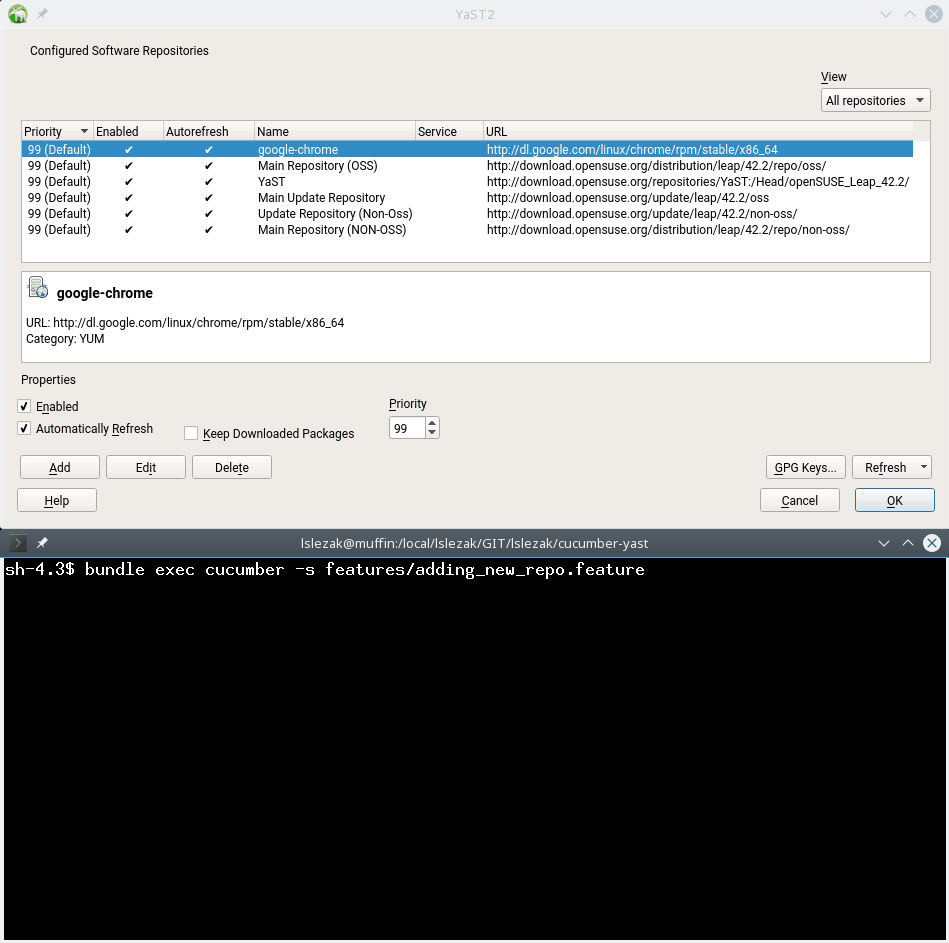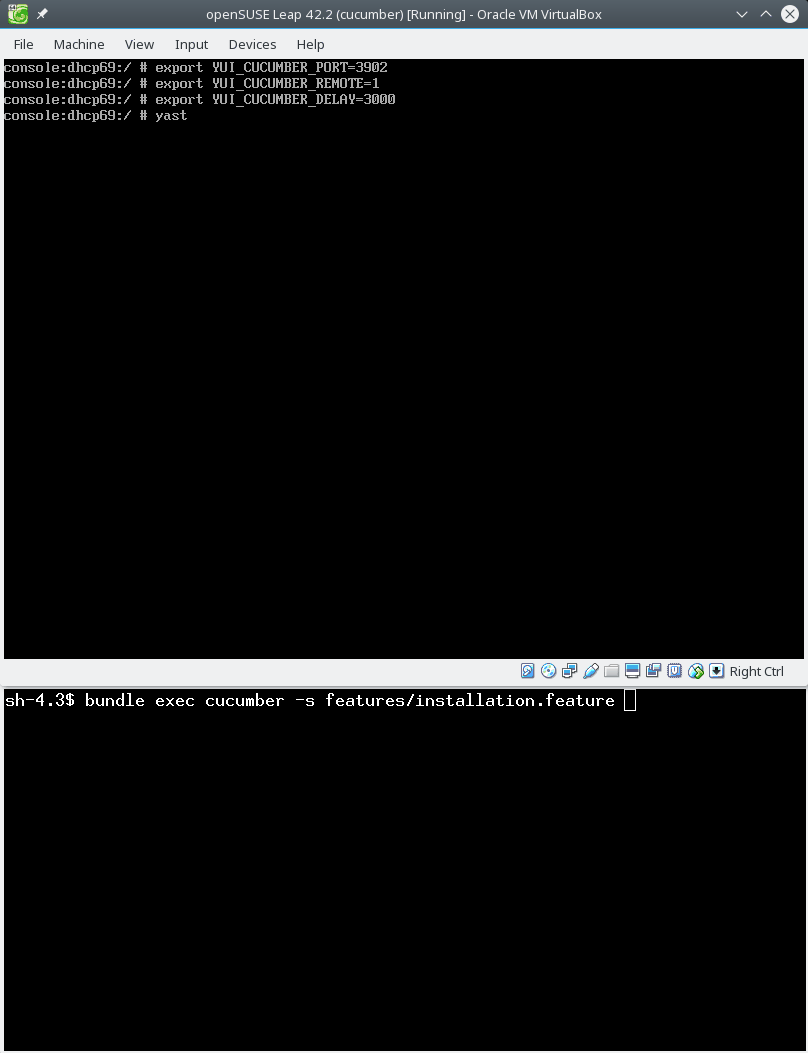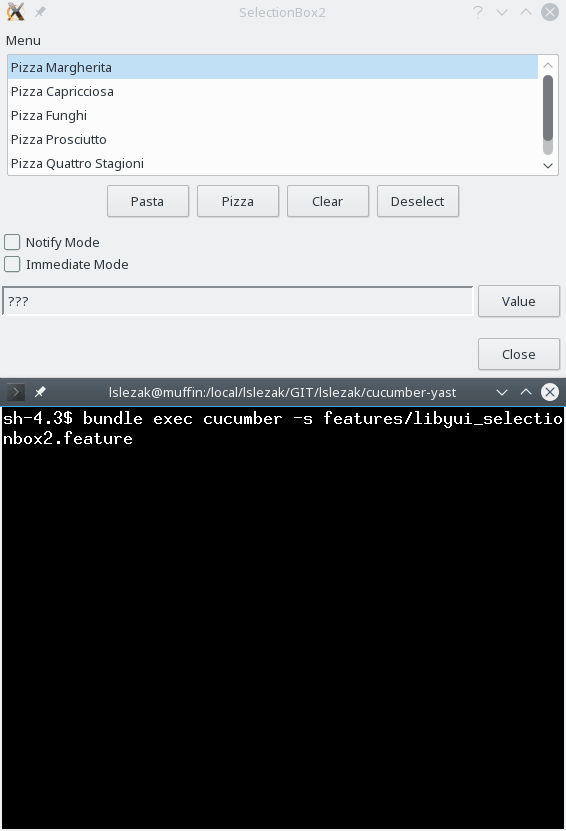Hackweek 15 - the YaST Integration Tests
Hackweek 15
I decided to spend the last SUSE Hackweek with YaST and find a way which would allow us to write and run YaST integration tests easily. See the details in the project Hackweek page.
Some time ago I found the cucumber-cpp project. It is a cucumber support for the C++ programming language.
The reason is that the YaST UI uses the libyui library which is written in C++. If we want to control and check the YaST UI we need to implement it on the libyui level.
The Hackweek Result
Here are some Cucumber test examples which I was able to run in a real system. The source code for the tests and the details how to run them can be found at the lslezak/cucumber-yast GitHub repository.
Currently only the graphical (Qt) UI is adapted, the textmode (ncurses) will not work and crash (because of the ABI incompatibility).
The code is available in my GitHub forks of libyui, libyui-qt and small improvement was done for the cucumber-cpp library. The experimental RPM packes are available in the home:lslezak:cucumber OBS repository.
Running a Cucumber Test in Installed system
Here is the output of the adding_new_repo.feature Cucumber test.

Running a Cucumber Test During Installation
This needs a patched openSUSE Leap 42.2 installer so it is not trivial to reproduce…
In this case the installation is running in a VirtualBox virtual machine and the test is running outside on my workstation. The test source is here.

Running a Cucumber Test for a Plain Libyui Application
The Cucumber tests can be written actually for any application which uses the libyui framework, not only for YaST. This might be interesting for the other users of the libyui framework, for example the Mageia tools.
Here is a test for the libyui SelectionBox2.cc example.

What I Learnt
- Using boost for implementing a simple TCP server is probably an overkill,
after seeing this boost::asio example
 I decided to use plain and simple
I decided to use plain and simple socket()/bind()/listen()C functions. - Synchronizing with the application is crucial, you cannot verify the UI
state until it is fully built by the application. In case of YaST it
is when
UI.UserInput(or similar) function is called. - I refreshed my C++ knowledge, I even used a C++ template in the code

Technical details
- The cucumber-cpp library uses the Cucumber wire protocol which basically sends JSON messages over a TCP port. The advantage is that it is possible to test the application running at another machine. This is useful for testing the YaST installation.
- I had to reimplement the server part as the cucumber-cpp library can only test an application represented by a single C++ object. Because YaST uses a plugin architecture where the parts are loaded dynamically and they cannot be easily accessed from outside so the server part must have been implemented directly on the libyui level.
- The advantage of this solution is that the integration tests are available to any libyui based application, not only YaST.
TODO
- Add more matchers
- Support for more UI calls (e.g.
UI.PollInput) - Support the other UIs (ncurses, GTK)
- Support for the packager widget (in the
libyui-*-pkgsubpackages) - Increase the Cucumber timeout - when a step takes too much time (e.g. installing packages) then the test runner times out
- Closing the application crashes the test (the TCP port is closed and cucumber reports broken pipe)
- The application needs to be already running, it is difficult to ensure clean initial state or restart the application for another test scenario
The last two issues are quite tricky, it seems we will need to run some wrapper and communicate with YaST in the tests indirectly. In that case we probably should use some simpler communication protocol like the Test Anything Protocol (TAP). I was told that this protocol is already supported by openQA so it should be easy to use it also there…